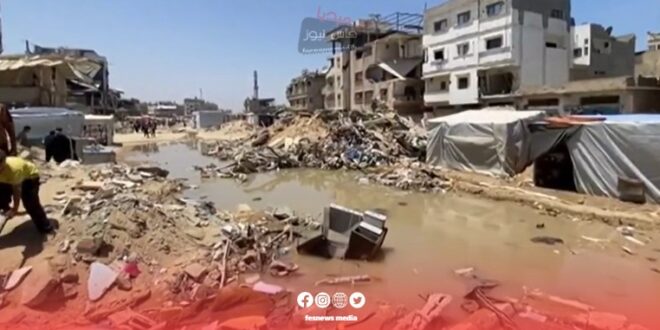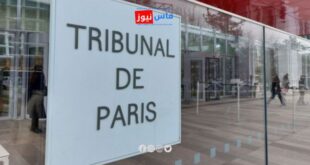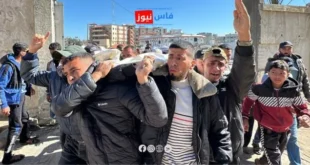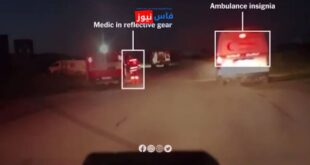In a new development in the Gaza crisis, Israeli Prime Minister Benjamin Netanyahu announced on Thursday additional conditions for agreeing to a ceasefire in the Strip. These conditions include Israel retaining control over a border area with Egypt that was seized in early May, with the aim of preventing “weapons smuggling” to the Palestinian Hamas movement.
Netanyahu clarified in a televised speech that the demand to retain control of the “Philadelphia Corridor and Rafah Crossing” is one of the “four principles” set by Israel as a condition for negotiations on a ceasefire in Gaza and the release of hostages. This comes at a time when Hamas is demanding the withdrawal of the Israeli army from this area.
The Philadelphia Corridor is a narrow buffer zone created by the Israeli army during its second occupation of the Gaza Strip (1967-2005). It is currently at least a hundred meters wide, more in some areas, and extends along the 14 kilometers of the border between the Gaza Strip and Egypt.
The Rafah Crossing, which is the only crossing between Gaza and any non-Israeli territory, is crucial for the transit of humanitarian aid. It has been closed since Israeli forces launched a large-scale ground offensive on Rafah city in early May, where the majority of Gaza Strip residents had taken refuge.
Netanyahu reiterated the other conditions set by his government in these indirect negotiations, in which Qatar, Egypt, and the United States are serving as mediators. He stated that any potential agreement “must allow Israel to resume fighting [after any potential truce] until the goals of the war are achieved.”
He added, “Israel will not allow the return of armed terrorists or weapons to northern Gaza Strip,” referring to the area that has seen fierce battles between the Israeli army and Palestinian armed groups, including Hamas’s military wing. He also demanded that the first phase of the plan under discussion should include “the release of the maximum number of hostages.”
It’s worth noting that the war broke out on October 7 following Hamas’s unprecedented attack on Israeli territory, which resulted in the death of 1,195 people, mostly civilians. Of the 251 people kidnapped, 116 remain hostages in Gaza, with 42 declared dead by the army.
In response, Israel vowed to destroy Hamas. Its military offensive, which has devastated the Gaza Strip, has so far resulted in 38,345 deaths, mostly civilians, according to data from the Health Ministry in the Hamas-run Gaza government.
This latest statement from Netanyahu underscores the complexity of the ongoing negotiations and the challenges in reaching a ceasefire agreement that satisfies both parties. The international community continues to call for an end to the hostilities and a peaceful resolution to the conflict.
 فاس نيوز ميديا جريدة الكترونية جهوية تعنى بشؤون و أخبار جهة فاس مكناس – متجددة على مدار الساعة
فاس نيوز ميديا جريدة الكترونية جهوية تعنى بشؤون و أخبار جهة فاس مكناس – متجددة على مدار الساعة








 China Assures EU: We Have Tools to Offset Economic Turbulence Amid Tensions with Washington
China Assures EU: We Have Tools to Offset Economic Turbulence Amid Tensions with Washington



